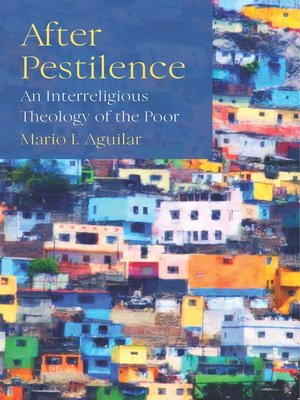
Sign up to save your library
With an OverDrive account, you can save your favorite libraries for at-a-glance information about availability. Find out more about OverDrive accounts.
Find this title in Libby, the library reading app by OverDrive.



Search for a digital library with this title
Title found at these libraries:
| Library Name | Distance |
|---|---|
| Loading... |
Theology, according to liberation theologians is only a second step. The first is praxis. A liberating praxis puts the poor and the marginalised at the centre. It is found in the collective response of global religious communities responding to crises – and a global pandemic offers an important case in point, reminding religions of our shared humanity, and the need for interreligious cooperation and understanding to effect a positive response. In the context of seismic socio-economic and political change, religion provides a communal response for feeding the poor, fighting for their rights, and challenging the post-colonial financial model that is now beginning to lose its ground. This book blends an examination of emerging research on the socio-economic impact of the COVID-19 pandemic in marginalised communities, with the author's own research on social and poverty isolation in India, and his own experience as told in diaries written whilst in lockdown in a poor district of Santiago, Chile. It challenges majority world churches and religions in a post-pandemic world to learn from each other and from Jesus' own identification with the outcast, and urges them to take on a way of life and prophetic learning from the world of the poor.|Theology, according to liberation theologians is only a second step. The first is praxis. A liberating praxis puts the poor and the marginalised at the centre. It is found in the collective response of global religious communities responding to crises – and a global pandemic offers an important case in point, reminding religions of our shared humanity, and the need for interreligious cooperation and understanding to effect a positive response. In the context of seismic socio-economic and political change, religion provides a communal response for feeding the poor, fighting for their rights, and challenging the post-colonial financial model that is now beginning to lose its ground. This book blends an examination of emerging research on the socio-economic impact of the COVID-19 pandemic in marginalised communities, with the author's own research on social and poverty isolation in India, and his own experience as told in diaries written whilst in lockdown in a poor district of Santiago, Chile. It challenges majority world churches and religions in a post-pandemic world to learn from each other and from Jesus' own identification with the outcast, and urges them to take on a way of life and prophetic learning from the world of the poor.







